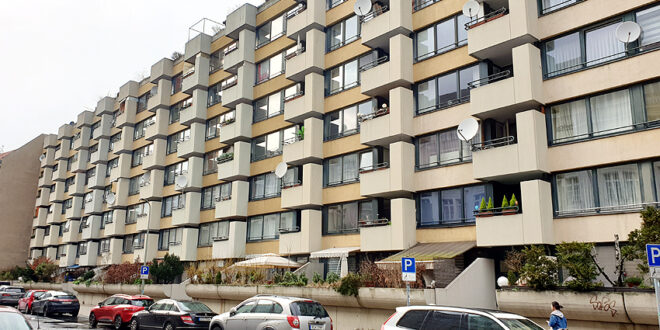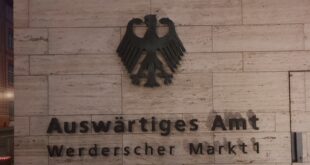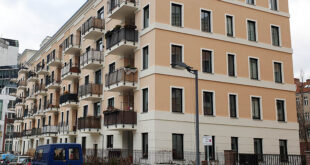Usually, new laws and regulations take effect at the beginning of every month in Germany. It’s not different for April 2020 despite the corona crisis. In fact, as a result of government’s emergency relief measures against the pandemic, there’re several additional changes, ranging from new regulations protecting tenants against eviction to those governing welfare benefits as well as support grants to small business owners and self-employed persons.
——-
Flight tickets to become more expensive
The air traffic taxes increase from 1 April, part of the government’s climate protection programme 2030. The increase depends on the flight’s route distance. For example, the tax on intra-European flights increases by 5.53 euros to 13.03 euros per person, on medium-haul routes of up to 6,000 kilometres by 9.58 euros to 33.01 euros and on long-haul routes of more than 6,000 kilometres by 17.25 euros to 59.43 euros. It is expected that the increase will also be reflected in ticket prices.
Rental price control (Mietpreisbremse)
The “Gesetz zur Mietpreisbremse”, a law that caps rental increases that has now been tightened and extended until 2025, comes into force on 1 April. Where it applies, a landlord is usually allowed to charge a maximum of ten percent above the standard local rental price when taking in new tenants. For the first time, tenants can also claim back excess rent they may have paid going back up to two and a half years.
The rental price control law has been in existence for five years. However, its benefits for tenants have so far been minimal, which is why it was improved and extended for another five years by the federal parliament.
Minimum wage in construction industry rises
Minimum wages for employees in the construction sector increase on 1 April. A distinction is made between “minimum wage 1” (Mindestlohn 1) and “minimum wage 2” (Mindestlohn 2).
The “minimum wage 1” applies to unskilled labourers (Hilfsarbeiten) on construction sites and it increases nationwide from 12.20 euros to 12.55 euros. The “minimum wage 2” for skilled workers is only paid in the western federal states and Berlin. In these states, it rises from 15.20 euros to 15.40 euros, in Berlin from 15.05 euros to 15.25 euros.
There is no “minimum wage 2” in the eastern federal states. Here the lower wage limit for skilled workers is also “minimum wage 1”.
New conditions for BAföG repayment
The conditions for the repayment of BAföG student loans also change from 1 April. The monthly payment instalment increases from 105 euros to 130 euros. The number of monthly instalments is 77, which corresponds to a total of 10,010 euros spread over a period of six and a half years. Previously, the cap was 10,000 euros.
If the income of a debtor is not enough to pay 130 euros per month, lower monthly instalments can be applied for. Anyone who has demonstrably attempted to repay the BAföG loan but was unable to do so will be forgiven the remaining debt after 20 years.
BAföG (Federal Training Assistance Act): Half of the support for students in higher education is provided in the form of a grant, the other half is an interest-free state loan totalling not more than 10,000 euros, which must be repaid in instalments after completion of the standard period of study.
BAföG enables young men and women to choose the training that suits their personal interests, irrespective of their families’ financial means.

ADAC contributions increase
The approximately 21 million members of the General German Automobile Association (Allgemeiner Deutscher Automobil Club or ADAC) will have to pay higher membership fees from April 2020.
From April, the basic tariff will cost 54 euros, five euros more than before. ‘Plus’ membership increases by ten euros to 94 euros. A new premium membership has been introduced, which costs 139 euros a year.
———–
Corona crisis relief measures
The spread of the corona virus has brought large parts of public life to a standstill. This affects the self-employed and companies, but also families, tenants or artists. In order to support them, the Bundestag and Bundesrat have passed an emergency package of relief measures into law. The measures in the social protection package (Sozialschutz-Paket) include:
—
Relief for the self-employed and Companies
An amount of 50 billion euros has been earmarked to support self-employed and small business owners as well as solo entrepreneurs such as hairdressers, barbers, musicians, artists or photographers. Anyone who declares that he has run into financial difficulties as a result of the corona crisis should receive between 9,000 and 15,000 euros for three months.
- Businesses with up to five (full-time equivalent) employees can apply for a one-off payment of up to 9,000 euros for a period of three months.
- Businesses with up to ten (full-time equivalent) employees can apply for a one-off payment of up to 15,000 euros for a period of three months.
Solo entrepreneurs (one-person businesses), freelancers and small business owners could receive up to 9,000 euros in grants under the federal scheme.
The reliefs can be applied for through the respective state governments from 1 March 2020 to 30 June 2020 – if necessary, the Federal Government can extend them until 31 December 2020.
The government has also set up a multi-billion-euro Economic Stabilisation Fund (Wirtschaftsstabilisierungsfond or WSF) to support medium-sized and large companies. Assistance provided by the Fund includes government guarantees for liabilities and an unlimited credit program and, if necessary, deferred tax payments. To save big companies from collapsing, the government provides for an emergency rescue through nationalisation, which will be reversed after the crisis.
Employees and companies are also to be helped with new short-time working regulations (Kurzarbeit).
Protection of tenants against eviction
Tenancy may not be terminated due to rent debts that arise between 1 April and 30 June.
Normally, a landlord can terminate the tenancy if no rent is paid for two months in a row. Terminations are now prohibited if loss of income as a result of the corona crisis means that the tenant cannot pay his rent. This new regulation should initially apply for the period from 1 April to 30 June 2020. However, the Federal Government is authorised to extend the period of the measure until 30 September 2020.
However, the tenant’s obligation to pay rent remains in principle, it is only postponed. The arrears owed by a tenant must be paid after two years at the latest – that is, by 30 June 2022.
Hartz IV now available without assessment
As Labour Offices (Job Centers) and employment agencies are currently closed, Unemployment Benefits 1 and 2 and the child supplementary allowance (Kinderzuschlag) can only be applied for online or by phone. In the case of applications for Unemployment Benefit 2 or Hartz IV, the review of the asset and the housing cost or rent of applicants should be suspended for six months. Access to Kinderzuschlag for low-income families is to be made easier with the authorities no longer using the income of the past six months as a basis for assessment, but only that of the previous month.
READ ALSO Germany: Corona Social Protection Measures take effect
Homeowners can suspend their mortgage loan repayment for three months
Many property owners repay their loans month after month. For some borrowers who are losing income due to the corona crisis, things can get tight. The Federal Government has therefore decided that there should be a legal deferral regulation, which stipulates that all consumer loan contracts that were concluded before 15 March 2020 can be paused for a maximum of three months. This means that homeowners can delay making their monthly mortgage payments for a temporary period – between 1 April 2020 and 30 June 2020 – without incurring any penalties.
Condition: The homeowner must prove that the coronavirus pandemic caused their loss of income – and that further payment of the loan during the crisis would lead to their basic livelihood being endangered.
Child supplementary allowance (Kinderzuschlag)
Parents who have suffered loss of earnings as a result of the corona crisis will have easier access to Kinderzuschlag, children supplementary allowance paid in addition to the regular children benefit (Kindergeld) from 1 April.
The Kinderzuschlag supports families when the parents’ earnings are not sufficient for the whole family.
So far, the average income over the past six months has been the basis for calculating the Kinderzuschlag. From April only the income of the last month before the application will be considered. This new regulation applies until the end of September.
Holidays in April 2020
There are three public holidays or two work-free days in April 2020:
- April 10 – Good Friday, public holiday
- April 12 – Easter Sunday
- April 13 – Easter Monday, public holiday
Femi Awoniyi /©TheAfrican Courier
More information in German on the website of the Federal Government HERE
 THE AFRICAN COURIER. Reporting Africa and its Diaspora! The African Courier is an international magazine published in Germany to report on Africa and the Diaspora African experience. The first issue of the bimonthly magazine appeared on the newsstands on 15 February 1998. The African Courier is a communication forum for European-African political, economic and cultural exchanges, and a voice for Africa in Europe.
THE AFRICAN COURIER. Reporting Africa and its Diaspora! The African Courier is an international magazine published in Germany to report on Africa and the Diaspora African experience. The first issue of the bimonthly magazine appeared on the newsstands on 15 February 1998. The African Courier is a communication forum for European-African political, economic and cultural exchanges, and a voice for Africa in Europe.




































